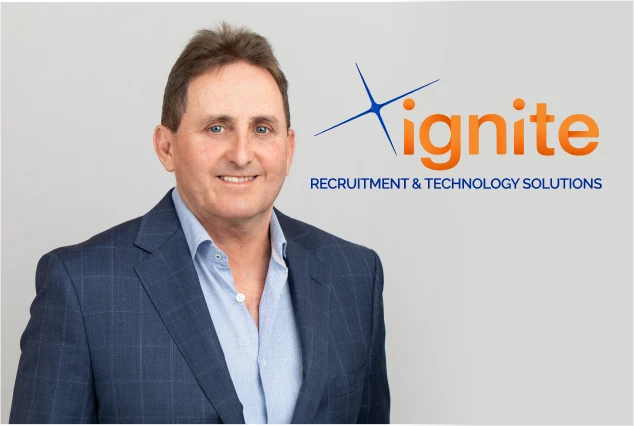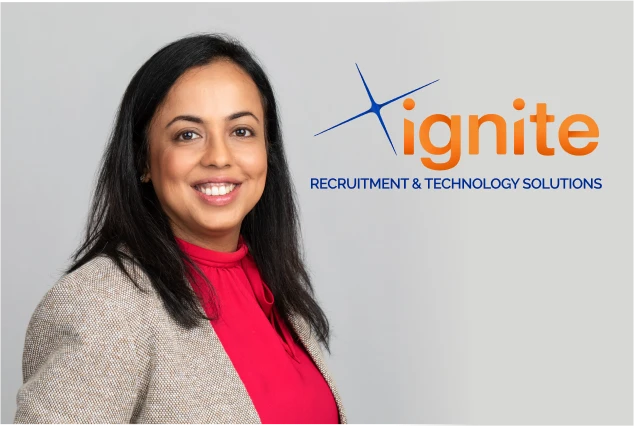Employee Spotlight: Michael Higgins
Name: Michael Higgins Position: Senior Recruitment Consultant, Specialist Recruitment, Engineering Location: Sydney CBD office Ignite Tenure: 16.5 years Michael Higgins has been a key pillar of our NSW Specialist Recruitment business for the best part of two decades. You could not meet a more passionate, dedicated and consistently high performing company man. Michael’s journey began in engineering, after completing a structural engineering diploma at TAFE. He worked at Sydney Water for 13+ years and was exposed to a wide range of engineering disciplines and characters along the way. He then moved into hospitality, where he was fortunate enough to own some successful restaurants and bars. For over a decade, he experienced firsthand the importance of recruiting the right people into the right roles to achieve sustainable business success. After a short career break, he recalls reading the local Sutherland Shire newspaper and seeing an advert in the classified section for a “recruitment consultant”. Excited by the potential of working close to home and being rewarded with an “uncapped commission”, he successfully applied and joined the Ignite business. Sixteen years later he is still here, combining his background in engineering and hospitality to be a very successful senior engineering recruitment consultant in our NSW Specialist Recruitment team. We sat down with Michael to find out more about his Ignite journey and remarkable success so far. Why did you choose to work for Ignite? Initially, I was excited by the convenience of working close to home and being rewarded with uncapped commission. I didn’t realise how valuable the experiences I had in engineering and hospitality would ultimately be in my Ignite career. I remember my first placement, and how genuinely excited the candidate was to be offered his dream role. It was very special and still is to this day. Another reason I chose Ignite was because of the great leaders and mentors I’ve had through the journey, who taught me the art and science of recruitment. How to identify opportunities, how to talk, how to listen, how to learn from disappointments and overcome obstacles. The opportunity to learn always excited me, and it is something that Ignite continues to provide me with today, which is one of the reasons why I continue to choose Ignite. What are some key market trends shaping engineering recruitment right now? I see the same trends across all businesses in all industries. Hard work is rewarded. Passion drives success. There are good and bad days, but tomorrow is always a new one. Talent is scarce. The smart operators hire the best people. The best people want to work for employers that empower them, provide opportunity and reward results. And finally, talent wants more work life balance and flexibility than ever before. The pandemic has created so much uncertainty in the job market, yet you are having one of your best years to date in terms of performance, what do you attribute this to? I am very selective with the clients I invest my time and expertise with. You need to work with clients who treat you as an equal. They take your calls, listen to your expert opinion and treat you with respect you’ve earned over time. These are the types of relationships that endure through hard times (like a pandemic) and are the type of relationships I’ve cultivated through my career. These relationships have allowed me to flourish even in challenging periods. But the pandemic has helped me in unexpected ways. It’s highlighted the importance of being adaptable and willing to work differently. For example, transitioning to remote work was initially a major challenge for me, but with support from the Ignite leadership team and exceptional tools put in place I was able to adopt this new way of work seamlessly. During this period, our team forged stronger connections despite forced separation and had uplifts in productivity as well. Now, remote work has become second nature to me and this willingness to adapt has helped me thrive in a period where others may have struggled. Michael, you have a strong reputation for building and maintaining long-term relationships with your clients, how have you achieved this and what are your top tips to help clients in your market? Recruitment is all about relationships. When it comes to clients, the strength of your relationships is dependent on the quality of candidates that you can deliver consistently. At the end of the day, clients want to fill roles, and source talent they can’t find on their own. So, the challenge is delivering this consistently and at a high standard even when the market is not in your favour. Achieve this, you can create a mutually beneficial bond with people that lasts for decades. So, my tips for clients are to invest time and energy into people and build a great environment for them where they want to come and work for you every day. Secondly, invest even more time identifying, attracting and rewarding people who want to join and stay on your journey. The best advice I can give is to share in your successes, learn from your failures. Support talent in both their professional and personal endeavours. Prioritise family, have fun and enjoy what you do! What are your top tips to help aspiring engineering talent? Work with an employer that genuinely cares about YOU. Someone who is willing to invest time and energy into YOUR career. Someone who takes an interest in what YOU do in and away from work. Someone who follows through with what they say. Trust your instincts. Listen to the people you trust. Learn from your mistakes. Be open to new experiences. Prioritise family. Have fun. Enjoy what you do! (sounds familiar). What are the things you love most about working at Ignite? The best thing about working at Ignite is the people I get to work alongside every day. Our colleagues, our leaders, our clients and our candidates. Ignite has provided me an environment for many years where I feel genuinely supported both professionally and personally. They care about me, my family, my development, my success and my journey. I feel incredibly fortunate to be given the opportunities, the skills, the tools and the environment to follow my dreams and be successful. Additionally, no two days are ever the same in recruitment. I am constantly learning 16 years in. Furthermore, it gives me the opportunity to play a small but critical role in helping people successfully reach their dreams, both clients and candidates, which is hard to replicate. At Ignite you can have lots of fun, enjoy the wins and share it with some great people. What sets Michael apart as an employee is his unrivalled passion for his role, for the people around him and for the broader Ignite organisation. His experience, knowledge and consistency for almost two decades has made him a true leader in our business that all staff look up to and enjoy working with. If you want the opportunity to work alongside exceptional people like Michael Higgins, visit our website career page today and join the Ignite journey.
Read More




